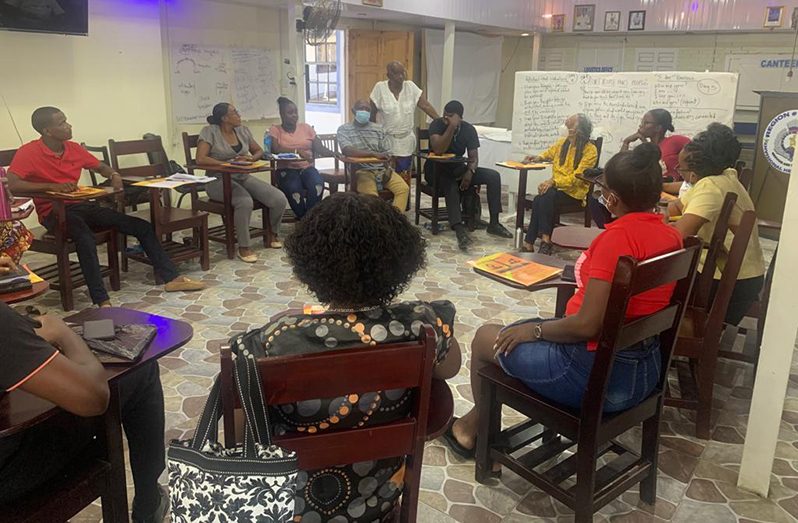– greater awareness of, access to services needed
WITH the need to strengthen sexual and reproductive health and rights (SRHR) services for women and men and increase public awareness, the Women and Gender Equality Commission (WGEC) last Wednesday hosted a virtual panel discussion dubbed ‘Let’s Talk About Sexual and Reproductive Health – Why is it Important to Gender Equality?’
The discussion explored the laws for sexual and reproductive health in Guyana and delivery of services, including family planning and contraception; cancers of the reproductive system; safe and legal abortion and care; gender-based violence and violence against women; maternal health and antenatal care and sexual health education.
Patricia Sheerattan-Bisnauth, Chief Executive Officer (CEO) at the Caribbean Family Planning Affiliation (CFPA); Dr Umadai Rattan, Women’s Health Specialist; and Sadie Amin, Attorney and Human Rights Advocate were part of the panel discussion moderated by Renata Chuck-A-Sang, Commissioner at the WGEC.
Sheerattan-Bisnauth said Guyana has made significant progress in promoting sexual and reproductive health and rights for women and girls over the years. She highlighted that the present rights interventions allow women and girls to have body autonomy and to make essential decisions about their bodies.
The CFPA head noted, however, that there are still some girls and women, especially in rural, riverine and hinterland communities, who have challenges accessing SRHR services.
Guyana is among the few Caribbean countries to decriminalise abortion and to make the termination of a pregnancy legal, safe and accessible.
In the same breath, she stressed the need to address the link between sexual and reproductive health and rights and gender-based violence, and applauded the Guyana Responsible Parenthood Association (GRPA) for its client-focused clinic that continues to encourage women and girls to access resources, counselling and the necessary support.
Similarly, Dr Rattan emphasised the urgent need for increased education on sexual and reproductive health across Guyana’s administrative regions.
“We do have health centres, and more than 300 healthcare facilities across the country,” she said, “[but] it would be unfair for me to say that there is equal access throughout the country.”
She cited transportation, availability of medical equipment, access to qualified personnel and quality commodities as some areas where there are challenges. She called for men to be more involved.
Dr Rattan expressed that there are still stigmas attached to the issue of fertility where “culture tends to blame the women a lot when they are not getting children.” She said both males and females should be screened by medical practitioners to assess fertility.
Meanwhile, Amin underscored the need to protect and safeguard women and girls with supportive legislation and policies that uphold sexual and reproductive health and rights.
While addressing the issue of accessing safe abortion services in Guyana, Amin said the Medical Termination of Pregnancy Act stipulates counselling for women and, in some instances, her partner, when seeking this service. There must be a 48-hour waiting period before the process is done, the lawyer noted.
Amin, who sat on the Medical Termination for Pregnancy Advisory board as a member of the Guyana Association of Women Lawyers (GAWL), related that based on previous work done, when a woman is ready to terminate her pregnancy she has already made that decision and she does not want to wait.
As a result, Amin pointed out that the waiting period could cause women to opt for less safe methods for abortions, which could have extreme effects on the patient.
She said that the Guyana Association of Women Lawyers (GAWL), together with other organisations, is looking to have that waiting period reduced to 12 hours.
Meanwhile, Chairperson of the Women and Gender Equality Commission, Indra Chandarpal, said responsibility rests on the commission to recommend changes to lawmakers to improve legislative frameworks.
This, she said, will continue to contribute to promoting women’s rights and gender equality in Guyana.




.png)









